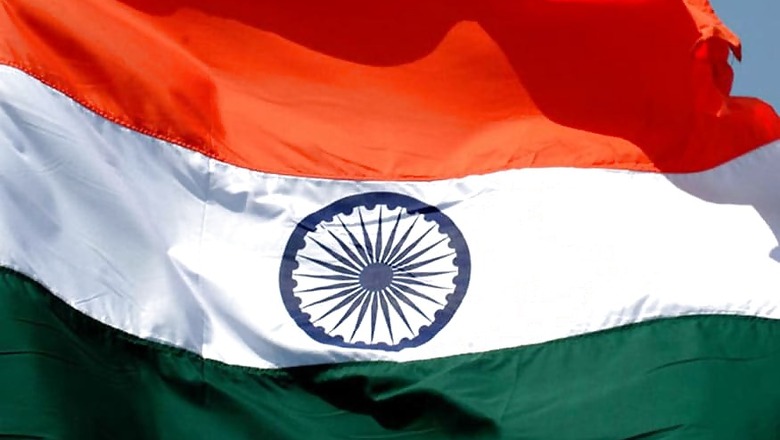
views
Tensions in and around the Korean peninsula have dramatically risen in the last one year. On one hand, North Korea has continued its provocations through nuclear and missile tests, including the test of a thermonuclear bomb conducted this Sunday. On the other hand, the US posture under Trump has been erratic – at times threatening "fire and fury" against North Korea and at other expressing scope and hope for talks – leaving its allies in the region uncertain.
With Pyongyang's ability to develop and deliver nuclear weapons, established through its successful nuclear and missile tests, Washington's threat of a pre-emptive conventional strike on North Korea has become more a rhetoric which Washington will unlikely risk following up on. Meanwhile, increasing war threats, growing number of military exercises, deployment of theatre ballistic missile defense systems, and, more importantly, a hardlined-position that any talks with North Korea must be preceded by a complete rollback of North Korea's nuclear weapons programme have driven Washington to a corner from where it is unable to break the impasse with Pyongyang peacefully.
In effect, the US appears to be unable to take up the mantle of resolving the North Korean crisis, being involved in the making and sustenance of the crisis itself. With this void in global leadership to steward the peaceful resolution of the North Korean nuclear issue, India has both the opportunity and the responsibility to attempt to broker a deal.
At the outset, it must be noted that India does not directly get affected by rising tensions at the Korean peninsula. India is one of the few countries that have maintained notable relations with North Korea, despite not being a traditional partner. New Delhi enjoys both diplomatic and trade relations with Pyongyang. But a breakdown of the same is unlikely to impose significant costs on New Delhi.
In fact, following international criticism of India's support to North Korea, including economically and scientifically – with education and training of North Korean students – New Delhi has been quick to comply with the United Nations sanctions by issuing a notice in April 2017 "that prevents any Indian national or entity from supplying directly or otherwise any material to North Korea that augments its war-fighting capabilities." Furthermore, in the same month, the Modi government announced cutting off all trade ties with North Korea, except on food and medicine. The move, welcomed by Washington, bodes well for New Delhi's immediate objectives, allowing it to politically capitalise on the growing difference between the US and China over North Korea.
Yet, as the international community wanders and fumbles in finding a peaceful resolution of the North Korean crisis, India has the right potential to fill the visible void in global leadership. New Delhi's active contribution to brokering a deal with Pyongyang would not only capture its growing stake in regional and international stability, it will also send a clear message to one of the prospective partners in that endeavour, Beijing, that Asia can only have a multipolar order – an order which cannot be dictated and determined by a single hegemon.
BRICS is one such platform which New Delhi could explore in collectively pursuing attempts to peacefully resolve the North Korean nuclear issue. The Russian President, Vladamir Putin, writing just before flying down to Xiamen, China for the BRICS Summit has already referred to the North Korean issue, noting that "the situation is balancing on the brink of a large-scale conflict." He adds that the "policy of putting pressure on Pyongyang to stop its nuclear missile programme is misguided and futile. The region's problems should only be settled through a direct dialogue of all the parties concerned without any preconditions. Provocations, pressure and militarist and insulting rhetoric are a dead-end road."
The immediate provocation, however, has come from North Korea with its sixth nuclear test conducted on Sunday. Conducted just a day before the commencement of the BRICS Summit in Xiamen, North Korea's nuclear test was discussed by the BRICS leaders and found mention in the final communique. While BRICS leaders have condemned North Korea's recent nuclear test, the Summit declaration stresses resolution through only peaceful means and dialogue – reiteration of the positions held by BRICS leaders individually.
The challenge that lies ahead, however and therefore, is primarily of resolving differences between involved stakeholders over preconditions for the commencement of any dialogue – US demanding complete rollback of North Korea's nuclear weapons programme, while North Korea dismissing such demands and asking for the rollback of US hostilities. Within BRICS at present, it is New Delhi which appears to be the closest to Washington on at least the geopolitical front. New Delhi could possibly use its good offices in Washington and Pyongyang to sow grounds for the commencement of talks, including an agreement on the preconditions, if not take direct part in the negotiation itself.
(The author is an associate fellow at the Observer Research Foundation and is currently pursuing projects on India's nuclear weapons policy and doctrine, and India's membership to the export control groups. Views expressed are personal)




















Comments
0 comment